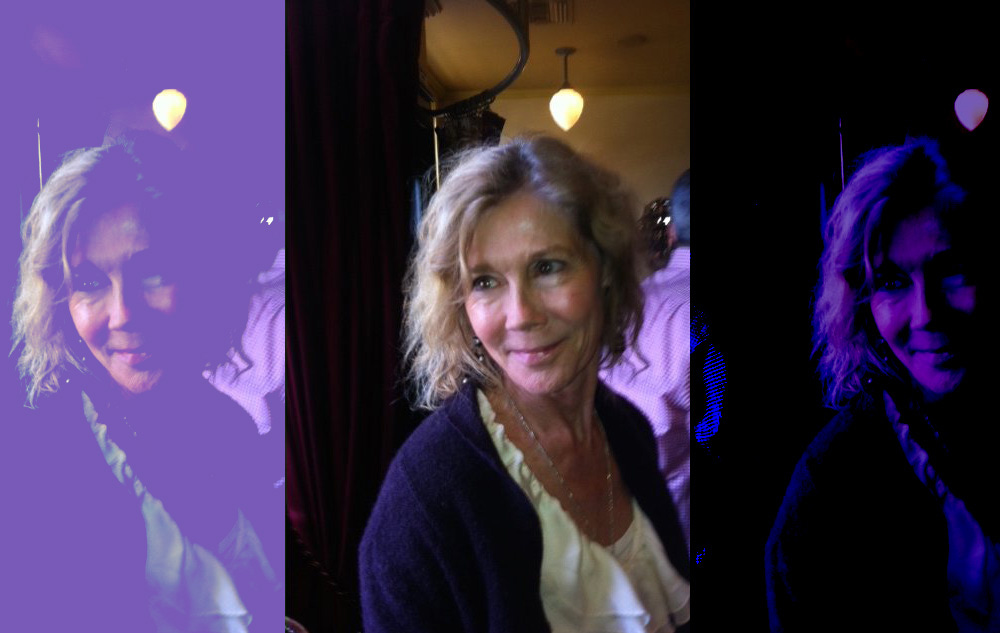Poetry in an age of ecological crisis
Graton poet Elizabeth Herron writes poems about the natural world in crisis
It’s a busy time for Graton writer Elizabeth Herron. As Sonoma County’s Poet Laureate for the 2022-24 term, literary events, local functions and her signature ‘Being Brave’ classes keep her schedule full.
“Being poet laureate for me is an act of service; it’s a way of giving back, and it’s a way of expanding the role of poetry in our lives,” she said.
Born in Chicago and raised in Hawaii, Herron earned a master’s in counseling at San Francisco State University, then studied biopoetics, earning a doctorate in psychology from the University for Integrative Learning. After a stint at San Francisco State University, she worked at Sonoma State University, first at the counseling center and later in the creative writing department.
A pivotal moment in her life occurred in 1991 when she witnessed firsthand the devastating environmental damage wrought by the Dunsmuir Spill, in which a train accident leaked 19,000 gallons of deadly herbicide into the Sacramento River. The chemical impact reached all the way to Lake Shasta, 20 miles downstream.
“I became conscious about what was happening to the natural environment,” Herron said of the experience.
Though she lived in West County by then, the incident galvanized her to dedicate a decade of her life and work to the study of wild trout and salmon and threats to their survival and, later, to climate change. Today the topic of climate crisis infuses her writing, and she tirelessly advocates for nature through her essays, poems and readings.
Her poems, she said, “come first and foremost out of my heart, and my heart takes me to a deep, deep concern for what’s going on around me, what’s happened to the planet, what’s going on with the climate and how that’s affecting all life.”
An essayist and poet, Herron’s work has appeared in literary journals and magazines including Reflections, West Marin Review, Free State Review, Silk Road, Orion, Parabola, Ions, Comstock Review, Eco-Citizen and Jung Journal, as well as numerous anthologies. She has also published several books.
Her latest published book, In the Cities of Sleep (Fernwood Press, 2023), is her contribution to EXTRACTION: Art on the Edge of the Abyss, a global creative project dedicated to exposing all forms of extractive industry and consisting of 50 intertwined exhibitions and events. A collection of climate-crisis poems, her book addresses the bigger picture of dwindling resources and resulting discord in our rapidly warming world, pushing us, as humans, to look for more viable alternatives to our present path.
Herron initiated the Being Brave Poetry Project when she assumed the role of local poet laureate in 2022.
“As Poet Laureate I offer workshops to foster the writing of being brave poems where people who may never have written a poem before can find words for what being brave means in their lives,” she said. “The workshops include conversation about what our poems tell us of what it means to live courageously. Along with each workshop a reading can be arranged.”
She continued, “I have been a student of Carl Jung’s work and I’m not a Buddhist, but I have read Buddhist texts and commentaries. So it’s all part of what I bring with me. But I think mostly what I bring is my own willingness to be open and vulnerable. That’s part of what makes the workshops come to life. And I think to be brave, we have to have company. We need each other.”
The three-hour workshops are designed for groups of 5 to 25 people. Each includes an introduction with samples of being brave poems, time for writing, time for sharing and facilitated conversations. Herron holds them in various locations, including at Sebastopol Center for the Arts and the Occidental Center for the Arts. Interested parties can contact her directly with questions or requests via her websites at www.elizabethherron.net or www.elizabeth-herron.com.
The classes have proven meaningful to both her and the students.
“There has been such a level of connection and intimacy with one another and [with] me,” she said. “I feel part of that, and it’s such a privilege. To be with people when they are open and in that kind of deep way where we talk about where our courage is, where our fears are. Because, you know, you can’t be brave without being scared.”
She added, “I think it’s been very successful. It’s kept me really busy. That period of time has been wonderfully busy. Sometimes two workshops a month; all together, probably 10 or 12 workshops so far. And they’re in different parts of the county — in bookstores, in private homes, in churches. That’s fine with me. I’ll work anywhere where people want me to come.”
Her advice for young writers?
“Write every day. Ten minutes, five minutes, so that writing is a habit so that when you are ready for the graced material that comes to you from the muse or outer space, you are ready; you have your chops,” she said. “I write first for myself. Some of us writers, we’re led first to writing to find something in ourselves we wouldn’t find any other way.”
What’s next for Herron, after her busy sojourn as Sonoma County Poet Laureate ends, in the summer of 2024? Perhaps a return to solitude is in order.
“Poetry is the solitary art and so [it provides] lots and lots of aloneness and time to reflect, which is the thing that I probably miss a little,” she said. “I’m generally used to a little more of that than I have these days. But I’ll have it back.”



